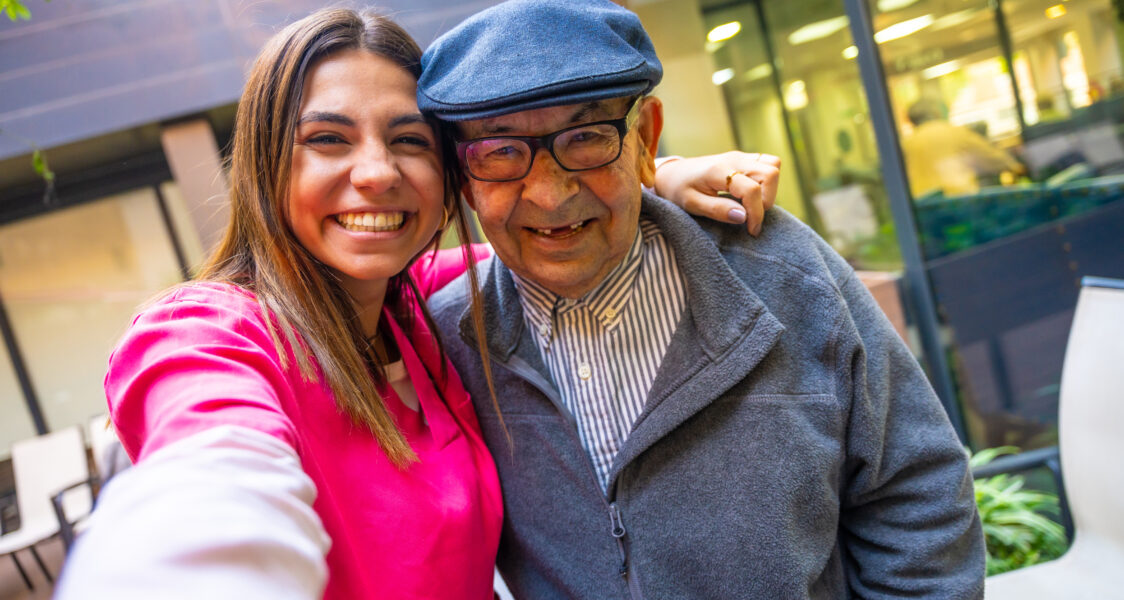Volunteer Opportunities for Seniors in Assisted Living
Looking for ways seniors can stay active and connected in assisted living? This guide explores meaningful volunteer opportunities, local and national programs, and how older adults can get involved—at their own pace. See what might be the right fit for you or a loved one.

Volunteering offers seniors in assisted living communities a meaningful way to stay active, connect with others, and make a positive impact. Whether you’re a resident, a family member, or someone from the local area, there are numerous ways to contribute your time and skills in community service. This guide from Koelsch Communities explores various volunteer opportunities, benefits, and steps to get involved. Let’s dive in!
Benefits of Volunteering for Seniors
Physical and Mental Health Advantages
Engaging in volunteer work can lead to improved physical health and a lower risk of depression among older adults. Studies have shown that seniors who volunteer regularly experience greater life satisfaction and often report higher levels of overall wellness. For instance, the National Institute on Aging reports that volunteering can reduce stress and improve mood, both of which support a healthier immune system. Even dedicating just one or two hours per week can lead to measurable benefits over time.
Volunteering also encourages routine and purpose, which can help seniors stay physically active and mentally engaged. Tasks like helping set up special events or participating in social activities contribute to a stronger sense of belonging and vitality.
Enhanced Social Connections
Seniors who participate in volunteer activities often find themselves making new friends and strengthening community ties. These interactions reduce feelings of isolation, which are common in older adults. Shared experiences through volunteering promote emotional well-being and offer opportunities for residents to form meaningful bonds.
For many seniors, these social benefits are just as important as the physical ones. Having a consistent role within the community fosters trust, increases communication, and reinforces each individual’s sense of value and identity.
Age is not a limitation. Seniors bring experience, empathy, and patience to every volunteer role, making them uniquely valuable to their communities.
Types of Volunteer Opportunities in Assisted Living Communities
Peer Support and Companionship
Seniors can support one another in a variety of ways. Many residents enjoy welcoming new neighbors to the community, providing tours, answering questions, and offering encouragement. This form of peer mentorship helps new residents feel at home more quickly.
In addition, spending time with fellow residents through friendly visits, reading sessions, or shared hobbies can provide comfort and companionship to those who may feel lonely or are adjusting to a new setting in long-term care. These simple acts of kindness have a meaningful impact on the day-to-day lives of seniors.
Activity Assistance
Assisted living communities host a range of events and programs to keep residents engaged. Volunteers often play a key role in making these events successful. Seniors can assist with arts and crafts sessions by helping to distribute materials, guiding others through projects, or leading small groups.
They might also participate in organizing music nights, game tournaments, or seasonal celebrations. Involvement in these activities allows volunteers to express creativity and leadership while bringing joy to others.
Administrative Support
Some seniors prefer quieter, behind-the-scenes roles that still offer value to the community. Administrative volunteering may include helping at the front desk, greeting guests, managing mail distribution, or updating bulletin boards. These responsibilities provide structure and routine, allowing residents to stay involved in the daily rhythm of the community.
Additionally, helping to organize newsletters or supporting clerical tasks for staff members can make operations smoother and create a sense of teamwork between residents and staff.
Spiritual and Emotional Support
For those interested in providing emotional or spiritual support, there are opportunities to lead prayer groups, coordinate meditation sessions, or simply be a listening ear for others. Emotional support roles foster connection and are particularly meaningful for residents going through transitions or experiencing grief.
These roles may also involve coordinating small group discussions or hosting book clubs focused on personal growth and encouragement, which further strengthens the emotional health of participants.
Volunteer Opportunities Beyond Assisted Living Communities
Community-Based Programs
Seniors in assisted living can still make a difference beyond their immediate community. Local programs often welcome volunteers to participate in outreach efforts. For example, delivering meals through organizations like Meals on Wheels allows volunteers to connect with others who may be homebound.
Similarly, some seniors participate in transportation services that support older adults getting to medical appointments or community centers. By sharing their time, volunteers not only support practical needs but also create social opportunities for others.
Educational and Mentorship Roles
Many programs connect seniors with younger generations through educational support. The AARP Experience Corps, for example, places volunteers in schools to help children improve their reading skills. These intergenerational programs benefit both sides: students gain academic help, and seniors gain fulfillment and connection.
Other roles may include serving as mentors through after-school programs or participating in local literacy initiatives. These opportunities allow seniors to share knowledge, life experiences, and encouragement with those just starting out in life.
What Volunteers Do at Nursing Homes and Senior Communities
Volunteering in a nursing home or an assisted living community can encompass a wide range of non-medical tasks that improve residents’ daily lives. This might include leading recreational games like bingo, helping with holiday celebrations, or organizing group discussions. Some volunteers provide technical help by assisting others with phones, tablets, or computers.
In addition to group activities, many volunteers provide one-on-one companionship, especially for residents with fewer family visits. Spending time—even just thirty minutes—talking, playing cards, or simply sitting together can be incredibly meaningful for both people.
Volunteers also help create a lively and engaging atmosphere by encouraging others to participate in programs and celebrating birthdays or anniversaries with fellow residents.
Can You Volunteer as a Caregiver in Assisted Living?
Understanding Boundaries and Responsibilities
In assisted living communities, caregiving is primarily provided by trained staff. However, volunteers can support caregiving efforts in non-clinical ways. This might involve helping residents get to activities, offering encouragement during meals, or spending time with individuals who benefit from social engagement.
Volunteers should always follow the guidelines set by the community to make sure their roles complement—not replace—those of the professional care team. This protects the safety and dignity of all residents.
When It’s Possible and Who It’s Right For
Family caregivers and long-time volunteers may be allowed to take on specific roles after training. In some cases, volunteers may assist with supportive services such as walking with a resident to appointments or keeping them company during quiet times. These responsibilities are especially helpful in memory care and respite care neighborhoods, where consistency and connection are important.
National Volunteer Programs for Older Americans
AmeriCorps Seniors Volunteers and RSVP Volunteers
AmeriCorps Seniors offers structured programs for individuals aged 55 and older. One of the most well-known is the Retired and Senior Volunteer Program (RSVP), which allows participants to choose where and how they want to serve. Opportunities range from organizing neighborhood watch groups to tutoring children or helping after natural disasters.
Other programs include the Foster Grandparent Program and the Senior Companion Program. These initiatives allow older adults to provide mentorship and companionship to those in need, especially individuals with disabilities or limited mobility. Volunteers typically commit just a few hours per week, making it manageable for those with health or time considerations.
AARP’s Create the Good
Create the Good by AARP provides an online platform where older adults can find volunteer opportunities based on interests and availability. It offers project ideas that include everything from writing letters to veterans to leading local clean-up efforts. The Create the Good volunteer guide helps seniors take the first step in giving back in a way that fits their lifestyle.
Am I Too Old to Volunteer?
Age should never be seen as a barrier to making a difference. Many organizations design their programs specifically with older adults in mind. Seniors bring decades of experience, patience, and insight to every volunteer role. Whether it’s organizing supplies, leading a discussion, or writing notes of encouragement, every effort counts.
Tasks can be adapted to meet a wide range of mobility and health needs. For example, someone who prefers not to walk long distances might enjoy calling other residents to invite them to events or crafting decorations for the dining room. The most important factor is choosing a role that feels comfortable and meaningful.
How to Start Volunteering from Assisted Living
Ask Your Life Enrichment Team
The Life Enrichment Director at your community is a valuable resource. These team members know the current programs in place and can help match you with a role that fits your interests and schedule. Whether you’d like to volunteer once a month or several times a week, they can help you get started.
If a particular type of opportunity isn’t currently available, the enrichment team can often help you create one. Many successful programs have started because a resident shared an idea that sparked interest from others.
Use Online Tools to Match Interests
If you’re interested in volunteering beyond your community, online platforms can help. Websites like Create the Good, VolunteerMatch.org, and AmeriCorps Seniors allow you to search by location, interest, and time commitment; and you can easily fill out a volunteer application right there online: Many listings also note whether the work can be done remotely or virtually.
Start Small and Build Confidence
Volunteering doesn’t have to be a large commitment. You might begin by helping at one event or trying out a weekly activity group. Over time, you can build up your involvement based on your comfort level and availability. This approach makes volunteering more sustainable and less overwhelming.
How Can I Help the Elderly in My Community?
Even if you’re already living in an assisted living community, there are still many ways to support fellow older adults. You might reach out to others who seem quiet or reserved and invite them to join you for a meal or attend a group event. Some residents write letters to homebound individuals or create greeting cards for birthdays.
Family members can also contribute by volunteering to visit regularly, read to small groups, or help organize special events. These efforts build stronger bonds within the community and support everyone’s well-being.
If you’re looking for a more structured role, consider contacting your local area agency on aging to learn about current needs and opportunities.
Barriers to Volunteering—And How to Overcome Them
Mobility or Health Limitations
If standing for long periods or traveling is difficult, look for volunteer roles that can be done while seated or within your living space. Tasks like writing notes, helping organize materials, or leading discussions are meaningful ways to contribute without physical strain.
Transportation and Accessibility
If transportation is a concern, consider on-site opportunities within your assisted living community. Many communities also provide transportation to and from local volunteer sites, especially for group activities.
Fear of Overcommitting
You don’t need to commit a large number of hours per week to make a difference. Start with one or two hours per month, or choose opportunities that allow for flexibility. Many organizations are grateful for any time you can offer.
Closing Thoughts
Volunteering creates opportunities for seniors to connect with others, share their talents, and experience a greater sense of purpose. Whether you’re supporting your peers within the community or reaching out beyond it, your time and efforts are valuable.
There are roles to fit every personality and ability—from creative projects to friendly visits to administrative tasks. Every action, no matter how small, contributes to a more connected and caring environment.
About Koelsch Communities
Koelsch Communities offers a wide range of “Mom-approved” senior living options designed to create fulfilling and enjoyable experiences. With over 60 years of experience, we have built a reputation for providing top-quality care and exceptional living environments. Our communities are staffed by professionals dedicated to treating our Ladies and Gentlemen with respect and providing the special attention they need.
We pride ourselves on our high customer satisfaction, which reflects our commitment to excellence. Our experienced team ensures that every resident feels valued and cared for, promoting a thriving and supportive community atmosphere.
For more information about our senior living options and to discover how we can help you or your loved one enjoy the finest living experiences, please contact us today. We look forward to welcoming you to our community and helping you find the perfect senior living solution.
Disclaimer: This article is for informational purposes only and does not constitute medical, legal, or financial advice. It’s recommended to consult with a medical, legal, or financial professional for your specific circumstances.









